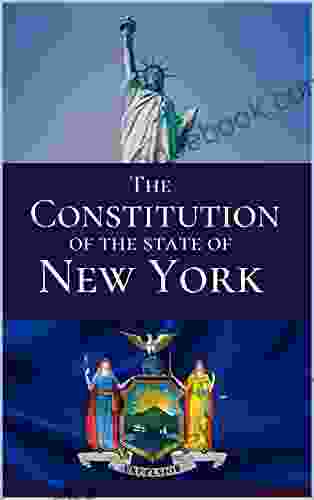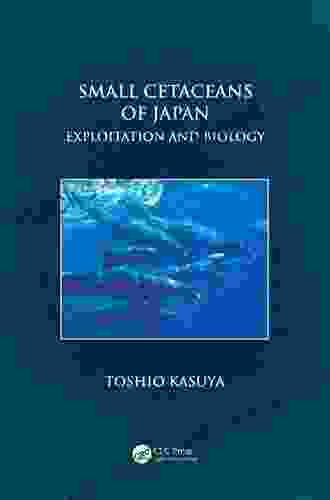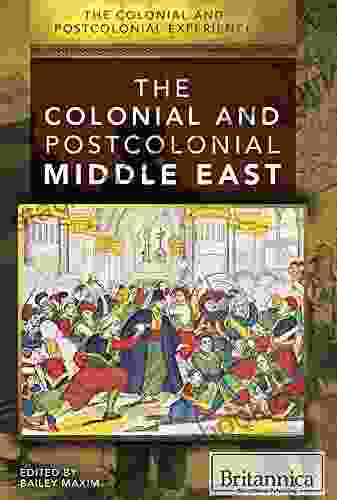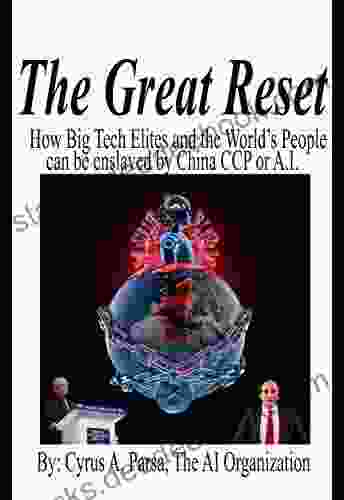Unveiling the Colonial and Postcolonial Experience in the Middle East: A Comprehensive Exploration

The Middle East, a region steeped in millennia of history and culture, has witnessed a complex and transformative journey through the eras of colonialism and postcolonialism. This article delves into the profound impact of these periods on the Middle East, exploring their multifaceted legacies and the challenges and opportunities they have shaped.
The Colonial Era: Imposition of Foreign Control
From the 16th century onwards, European powers embarked on a quest for colonial expansion, seeking to extend their influence and control over distant lands. The Middle East, with its strategic location and rich resources, became a prime target for these imperial ambitions.
4.7 out of 5
| Language | : | English |
| File size | : | 13128 KB |
| Text-to-Speech | : | Enabled |
| Screen Reader | : | Supported |
| Enhanced typesetting | : | Enabled |
| Word Wise | : | Enabled |
| Print length | : | 256 pages |
Over time, European powers established colonies in various parts of the Middle East, including the British in Egypt, Palestine, and Iraq, the French in Syria and Lebanon, and the Italians in Libya. These colonial powers imposed their political, economic, and cultural systems on the region, often leading to profound changes and disruptions.
Economic Exploitation
One of the primary motivations for Western colonialism was economic gain. The Middle East possessed vast reserves of oil, gas, and other natural resources, which colonial powers sought to exploit for their own benefit.
Colonial powers established plantations, mines, and other industries in the Middle East, extracting resources and profits while often neglecting the well-being of local populations. This economic exploitation had far-reaching consequences, shaping the region's economic development and contributing to social and political tensions.
Political Suppression
Colonial powers also imposed their political control over the Middle East, suppressing local autonomy and self-determination. They established authoritarian regimes that limited political participation and stifled dissent.
This political suppression had a profound impact on the development of democracy and human rights in the Middle East. It fueled resentment and resistance among local populations, contributing to the rise of nationalist movements and eventual calls for independence.
Cultural Assimilation
In addition to economic and political control, colonial powers also sought to assimilate the cultures of the Middle East into their own. They introduced their languages, education systems, and value systems, often marginalizing and suppressing local traditions and beliefs.
This cultural assimilation had a mixed impact on the Middle East. While it led to the of new ideas and technologies, it also resulted in cultural alienation and a loss of traditional identities.
The Postcolonial Era: Struggles and Transformations
The postcolonial era in the Middle East began with the decline of European colonial empires after World War II. Many countries gained independence, but they faced numerous challenges in building new nations and addressing the legacies of colonialism.
The postcolonial period in the Middle East has been marked by ongoing political, economic, and social transformations. The region has witnessed conflicts, revolutions, and the rise of new political movements.
Nation-Building and Statehood
After independence, new nations in the Middle East faced the task of nation-building and establishing stable political systems. They grappled with issues of territorial boundaries, resource distribution, and the development of national identities.
The process of nation-building has been complex and challenging, often leading to political instability, ethnic conflicts, and authoritarian rule in some countries.
Economic Challenges and Development
Postcolonial states in the Middle East inherited economies that had been shaped by colonial exploitation. They faced challenges in diversifying their economies, creating employment opportunities, and addressing poverty and inequality.
While some countries achieved significant economic growth, others struggled with economic stagnation and dependence on foreign aid. The region has also been affected by global economic crises and fluctuations in oil prices.
Social and Cultural Changes
The postcolonial era in the Middle East has also brought about significant social and cultural changes. Education levels have improved, and women have gained more rights and opportunities.
However, the region has also faced challenges related to gender equality, human rights, and the preservation of cultural heritage. The influence of globalization and social media has also had a transformative impact on societies in the Middle East.
Legacy and Ongoing Impact
The colonial and postcolonial experience has left a profound and enduring legacy on the Middle East. Colonialism has shaped the region's political boundaries, economic systems, and cultural identities.
The postcolonial era has been a time of both progress and challenges. The region has witnessed the emergence of new nation-states, economic growth, and social changes. However, it has also faced conflicts, political instability, and persistent economic disparities.
Today, the Middle East remains a region in transition, grappling with the legacies of colonialism and postcolonialism. Understanding these experiences is crucial for addressing the complex challenges and unlocking the potential of this vibrant and diverse region.
The colonial and postcolonial experience in the Middle East has been a transformative journey, shaping the region's past, present, and future. From the imposition of foreign control to the struggles and transformations of nation-building, the region has witnessed profound changes and challenges.
Understanding this complex history is essential for comprehending the current challenges and opportunities facing the Middle East. It requires recognizing the enduring legacies of colonialism, the complexities of postcolonial development, and the resilience and aspirations of the region's people.
As the Middle East navigates its future, it is important to acknowledge the lessons learned from the past and work towards a just and prosperous future for all its inhabitants. This involves addressing the challenges of authoritarianism, inequality, and extremism, while embracing the region's rich cultural heritage and the potential of its people.
4.7 out of 5
| Language | : | English |
| File size | : | 13128 KB |
| Text-to-Speech | : | Enabled |
| Screen Reader | : | Supported |
| Enhanced typesetting | : | Enabled |
| Word Wise | : | Enabled |
| Print length | : | 256 pages |
Do you want to contribute by writing guest posts on this blog?
Please contact us and send us a resume of previous articles that you have written.
 Book
Book Novel
Novel Page
Page Genre
Genre Reader
Reader Paperback
Paperback E-book
E-book Paragraph
Paragraph Sentence
Sentence Glossary
Glossary Bibliography
Bibliography Annotation
Annotation Footnote
Footnote Manuscript
Manuscript Scroll
Scroll Bestseller
Bestseller Classics
Classics Library card
Library card Autobiography
Autobiography Dictionary
Dictionary Narrator
Narrator Character
Character Librarian
Librarian Catalog
Catalog Stacks
Stacks Archives
Archives Research
Research Reserve
Reserve Academic
Academic Reading Room
Reading Room Rare Books
Rare Books Special Collections
Special Collections Interlibrary
Interlibrary Literacy
Literacy Study Group
Study Group Thesis
Thesis Reading List
Reading List Book Club
Book Club Theory
Theory Textbooks
Textbooks Lisa M Herrington
Lisa M Herrington Amy Fernandez
Amy Fernandez Georges Simenon
Georges Simenon Carroll Dorgan
Carroll Dorgan H R Woudhuysen
H R Woudhuysen Prasanth Kallay
Prasanth Kallay Jayson Miller
Jayson Miller Michael Kimmage
Michael Kimmage Jeff Gadsden
Jeff Gadsden John Wellwood
John Wellwood Charles Christopher Camosy
Charles Christopher Camosy Adriana Locke
Adriana Locke Ulbe Bosma
Ulbe Bosma Alex Ogg
Alex Ogg Percy Bysshe Shelley
Percy Bysshe Shelley Adrian Trendall
Adrian Trendall Bo Miles
Bo Miles Honor Raconteur
Honor Raconteur Anwar Uddin
Anwar Uddin Sam Mahon
Sam Mahon
Light bulbAdvertise smarter! Our strategic ad space ensures maximum exposure. Reserve your spot today!

 Arthur C. ClarkeFolk History of Slavery in the United States: A Tapestry of Memories from...
Arthur C. ClarkeFolk History of Slavery in the United States: A Tapestry of Memories from...
 George Bernard ShawThe Canary Murder Case: An Enthralling Tale of Philo Vance's Investigative...
George Bernard ShawThe Canary Murder Case: An Enthralling Tale of Philo Vance's Investigative... Dwayne MitchellFollow ·4.2k
Dwayne MitchellFollow ·4.2k Jermaine PowellFollow ·5.3k
Jermaine PowellFollow ·5.3k George Bernard ShawFollow ·7.4k
George Bernard ShawFollow ·7.4k Grayson BellFollow ·13.3k
Grayson BellFollow ·13.3k Cruz SimmonsFollow ·16.3k
Cruz SimmonsFollow ·16.3k Ian McEwanFollow ·8k
Ian McEwanFollow ·8k Jake PowellFollow ·15.5k
Jake PowellFollow ·15.5k Dan BrownFollow ·3.6k
Dan BrownFollow ·3.6k

 Amir Simmons
Amir SimmonsMore Zeal Than Discretion: A Closer Look at the Risks and...
Enthusiasm is often seen as a positive...

 Wayne Carter
Wayne CarterYear of the Dog: American Poets Continuum 178
Year of the Dog is a...

 David Foster Wallace
David Foster WallaceThe Constitution of the State of New York: A...
The Constitution of the...

 Harvey Bell
Harvey BellSmall Cetaceans of Japan: Exploitation and Biology
Small cetaceans, including...

 Blake Bell
Blake BellEffortless Elegance: A Comprehensive Guide to Captivating...
In the realm of crocheting,...
4.7 out of 5
| Language | : | English |
| File size | : | 13128 KB |
| Text-to-Speech | : | Enabled |
| Screen Reader | : | Supported |
| Enhanced typesetting | : | Enabled |
| Word Wise | : | Enabled |
| Print length | : | 256 pages |










